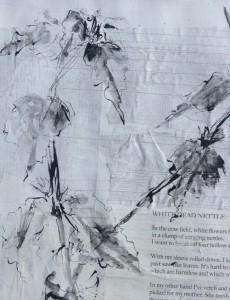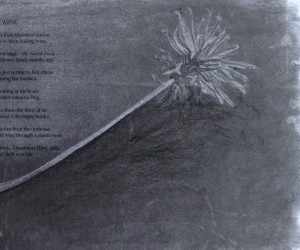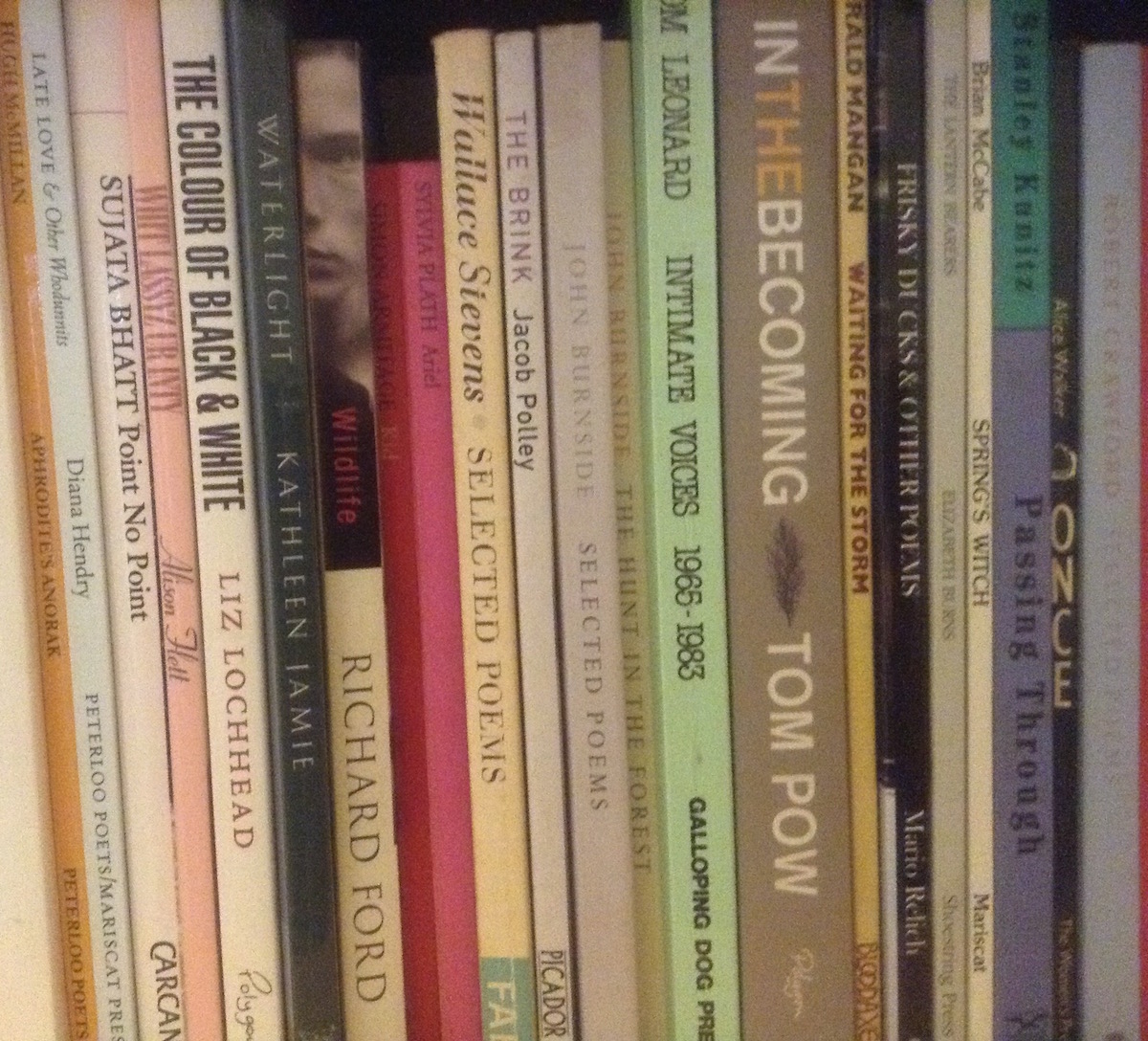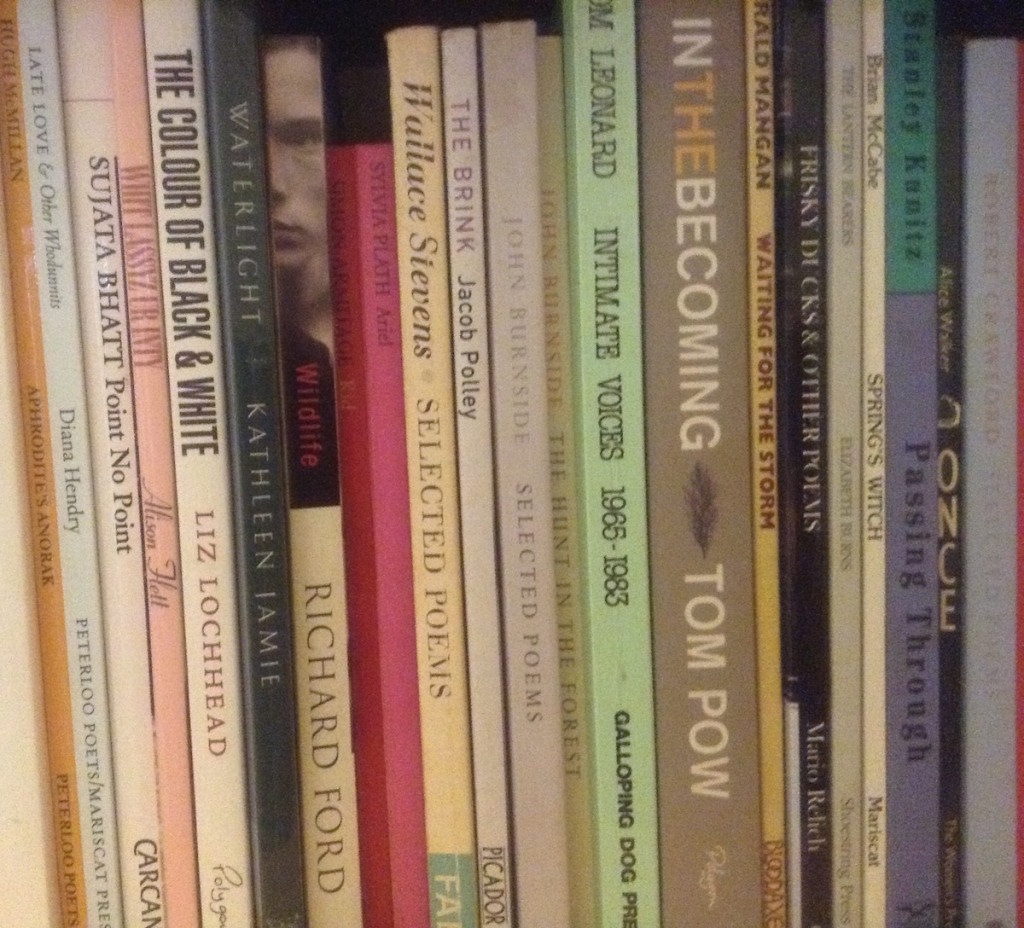Annie waited for them to leave. She woke herself up early, so she could listen out for them getting ready. First mum, then Joel, leaving her alone, the house to herself. Mum was driving to Heathrow. She was a useless driver – she said so herself. She’d wanted Joel, the lodger, to drive her, but he couldn’t, he was working, so she’d be going at 40 miles an hour all the way along the M4 and leaving hours more time than she really needed, if she’d been a normal driver. ‘You’re useless,’ she’d said to Joel. Annie had tried to soothe things between them. ‘You wouldn’t let him drive fast anyway,’ she’d pointed out. Mum always had her foot on an imaginary brake, it used to drive dad mad. Joel had laughed, ‘in my car, she lets me.’ Mum had given him a look. ‘I’m better off going alone,’ she’d said, ‘you are only the lodger,’ and she’d walked off, more angry than before.
Mum was flying to Paris to collect Gordon. To fetch him home again. It wasn’t just Gordon she’d gone to get, there was Melody Hunt too. They’d run away together. Nobody thought it was romantic. Mum was angry. Annie felt cross too, because Gordon had got mum going again and nobody had talked about anything else for weeks. Even teachers at school had been asking her, when she was trying to get a break from it all. She was glad it was half term. Dad thought mum was over-reacting. ‘About time the boy got his leg over,’ he’d said. ‘He is 17.’ Everyone seemed to get her going.
They’d been gone for almost a month, at the coldest time of the year. Every time they woke up to frost mum said ‘I hope his balls shrivel up with the cold.’ Then she’d tracked them down. They were stuck in a tiny room in a huge hotel on the outskirts of Paris. Mum said it was soulless. She seemed glad.
When mum came in to say goodbye she stroked Annie’s hair and kissed her forehead. Annie pretended to be asleep. She could hear mum breathing loudly through her mouth. She dozed after that, waking to hear the regular noises of Joel getting up for work. The sounds from his room; the creak from his mattress, the hollow dunt of the loose floorboard by his bed as he stood up. He never missed it. His yawn as he stretched, it was so loud, like it took over his body. Then the latch lifting on his door and for a moment he was outside her room. He’d be in the kitchen for a while, but Annie couldn’t make out any sounds. She imagined the toast crumbs at the corners of his mouth, she liked to think of him lonely at the table and with nothing to read. Finally the front door, clicked shut. He’d pulled it to gently, so as not to wake her.
She lay in bed still, stretching out so her feet touched the sides. She had the whole day to herself. Joel would be home first, at six. Mum wouldn’t be back until ten, eleven even, at night. She wasn’t to wait up. She didn’t want to anyway, seeing Gordon all pale from living in empty hotels and only white bread to eat.
There was no need to get dressed straight away, she didn’t even have to eat breakfast. She could just eat toast, there was no one to check. She got up and stood at the top of the stairs wondering what she’d like to do first. Joel’s door was open, by at least a foot. She edged it open another few inches so she could see in. Just to make sure he really had gone to work, that she’d heard the sounds right.
His bed was unmade, the curtains half shut, his bedside light still on. His room was always a mess. Mum complained about it but Joel laughed and teased her, said she loved it, didn’t she, being the stern landlady. Then mum would laugh too, she didn’t want to be stern with him at all. She’d come and do it herself, she said, when he was asleep. Joel said he wouldn’t mind. She hadn’t done it last night though, judging by the heaps of clothes on the floor.
There wasn’t much to look at – a record player on the floor and a pile of L.Ps. She didn’t recognise the name of the top one. Jethro Tull; a picture of a man in a wood sitting by a fire. What would it be like to listen to the records together? To like them as much as he did, to sit together saying nothing, just listening. If it was what they did together in the evenings – him choosing one then her. Maybe they’d sit on the bed. She sat on the edge of the mattress, but it was awkward, still having her feet on the floor. She brought her legs under the duvet, they’d be right next to each other now, probably with their legs touching, it was a narrow bed after all.
She couldn’t work out whether to have her hands under the duvet or on top. Underneath she felt like a little girl, waiting for a night night kiss. On top and she was like a patient in a hospital bed. Maybe it was because her hands didn’t have anything to do. Maybe it was because of the frilly nightie she had on. Mum liked to buy them for her even though she wanted pyjamas. It wasn’t the sort of thing she’d be wearing with Joel, sitting in bed, listening to his L.Ps.
She pulled the nightie over her head. She wouldn’t be naked of course, she’d have on something silky with ribbons for straps. In cream. He wouldn’t be wearing anything on top, men didn’t have to. Without her nightie her breasts and belly, both rounder than she’d like, were out. She’d rather have had them under the blankets, but then she’d have to be practically lying down and they wouldn’t be lying down, to listen to his L.Ps. There was nothing for it but to have them out and just pretend they weren’t there. She closed her eyes, which helped, and pictured him next to her. The sound of his breath, his hands near hers, doing something ordinary, because this was their habit, especially on Saturday mornings. They couldn’t stay there for ever, of course. She got herself back into the nightie, rearranged the bedding how she’d found it and started into the empty house.
It hadn’t been any quieter without Gordon. They hadn’t even noticed he’d gone to begin with. He was always hiding in his room. Mum went in with some clean, ironed clothes and he wasn’t there. His window was open and a rope was hanging from it. Annie thought this was stupid – Gordon and his fancy knots. Why couldn’t he have just sneaked out through the garden like any normal person. Gone outside to fetch something and then just left through the garage. That’s what she’d have done. Gordon just wanted to make a great escape, as if he’d been imprisoned in a tower.
Mum had freaked out. When she’d screamed Annie had come running and found her with the rope in one hand and a note in the other. ‘I thought he’d tried to hang himself,’ she sobbed. Joel had come in and comforted her; she’d cried with all her face hidden in his chest. Then she’d begun to read out the note and Annie could tell she was going to be angry. ‘ ‘We’re really sorry but we have to get away. We need some space to ourselves. We’ll be OK, don’t worry about us. We’ve got some money.’ That was when she’d really started yelling. ‘What does he mean, space?’ Annie hadn’t said anything, it wasn’t a real question. Joel hadn’t answered either. ‘Why does that have boy have to talk in clichés? I’ve no idea what he means. Doesn’t he have enough space from us, shut away in here all day? We hardly ever see him. That bloody girl.’ She’d meant Melody, mum had never liked her. Annie didn’t much either, though she was pretty. Melody only wanted to be Gordon’s girlfriend. She was going out with someone else. Someone stupid called Dave who wore leather clothes. Gordon pretended not to mind, though he wasn’t friends with Dave.
Annie had to go past Gordon’s room on her way down to the kitchen so she had a look in. It was a mess too and it was beginning to smell. Mum had refused to tidy it. Sometimes mum had been so angry she didn’t even want to look for him. But then she didn’t want him to get away with it either. And it was February. He’d be cold, even in France.
It wasn’t the first time Gordon and Melody had tried to run away. Mum had caught them at the bus stop, trying to get to London. It was just after Joel had moved in. Annie had been away visiting dad. Gordon had refused to come. Annie had felt annoyed when she found out why. She’d wanted to stay at home too, what with Joel being so new. But she’d gone because of dad – she’d felt bad for dad, sorry for him. He must have thought Gordon didn’t want to see him. She’d made up an excuse for him about school work. Dad would want to believe that – Gordon never usually did any. She’d gone to all that effort and it wasn’t that he didn’t want to come at all. It was just an excuse. She’d been glad they’d been caught. She wished she’d seen the shouting after.
By the time she’d got home mum had stopped shouting and had started worrying instead. She’d got a theory about Gordon and Melody. Gordon only wanted her because he couldn’t have her. She was unobtainable. It was a thing people did, she said, ‘love hopelessly.’ Mum was worried because Melody was his third hopeless love since he’d turned 16. Mum said Gordon was like her when she was in love. Vernon had been the most recent. ‘Some people need to love in vain,’ she said, ‘it’s safer.’ ‘What about dad? You didn’t love him in vain.’ ‘No,’ mum sighed, ‘and look what happened there.’
Gordon still had a photo of the first on his bookshelf. Theresa. Annie picked it up and rubbed the dust off with her nightie. There wasn’t a photo of Justine, mum wouldn’t have allowed that. There were two of Melody though, one even had Gordon in it and they almost looked like a couple. Gordon was gazing at her and she was smiling back. It wasn’t fair, Melody being so friendly with Gordon when she didn’t want him. Though Annie could see why. He never came out of his room for a start and he never said much. He would be boring to go out with. Annie looked round the room trying to feel like she’d missed him. Gordon’s metal bed, the red paint chipped. She had one the same only hers was blue. Gordon wouldn’t want to be back at home. Especially with mum being angry. That would go on for days, maybe even a week. Annie wondered what she’d do while mum was being angry. She couldn’t side with Gordon. She didn’t want to, it was all his fault in the first place. Not that siding with Gordon would stop the anger anyway. It would probably make it go on for longer. They’d be two of them getting it.
Once they’d run away together. Gordon had packed Annie’s rucksack for her and woken her up when it was time to leave. She’d been pleased he’d wanted her to come though she’d not had any real reason to leave. She’d only been nine. What had been Gordon’s reason? It had been before dad had left. They hadn’t even managed to get out of the front door. It should have been late enough but mum and dad had been still up, talking. There’d been double the shouting – most for Gordon but Annie had got her share too. She couldn’t remember dad saying anything. He’d taken her back to bed though and carried their bags back upstairs. That was the sort of thing he did.
‘I needed someone practical,’ mum would say when she was trying to work out why she’d gone for dad in the first place. But then other days she’d say ‘I was such a fool, you should never pick a man for his DIY skills.’ Maybe Melody would go out with Gordon if he was more practical. But then knots were a practical kind of thing, especially if you had a knot for all situations, like Gordon did. Melody obviously didn’t need any knots tying. Annie turned the radiator back on as she left the room.
As she had the house to herself Annie thought she’d use mum’s bathroom. It had black and white tiles up to the ceiling. You could see your face in the black ones. She liked it when the door was ajar and she could see mum in her bedroom, folding clothes, putting them away. The sound of the wardrobe door opening and shutting.
The first phone call had come like that, when Annie was in the bathroom and mum was in the bedroom, changing the sheets. The phone was right by the bed but mum had pounced on it. She’d been doing that for weeks; waiting for the phone to ring then pouncing. Occasionally, when she was feeling really angry, she’d ignore the phone ‘a woman’s whole life is about waiting,’ she’d say, ‘waiting for men and jumping to their every call. I refuse to do it.’ The phone would ring and ring and ring and then stop. Then she’d feel terrible and she’d ring the operator to ask who had phoned and it’d be Susan Carey from across the road, or someone from the library and she’d be angry with them then, for hogging the line. Didn’t they know about Gordon?
This time mum did answer and it was him. It wasn’t a clear line. Annie, in the bath, could hear mum shouting ‘Gordon? Gordon? Is that you?’ Annie flattened the water very gently with her hands and watched the bubbles disappear. Then, when mum knew it was him, ‘where the hell are you?’ A pause. ‘Just tell me where you are and I’ll send the money.’ Another pause, Annie rested her hands on top of the water and listened harder. ‘Darling, I need to know where you are, that you’re safe. I can’t give you money without knowing that. OK, I’ll write it down. What? Yes, got it. 34971. Sweetheart, I love you. We miss you. Can’t you just come home?’ Annie paddled the water with her knees to make it feel warmer. ‘Just tell me where you are.’ Mum was shouting again. ‘Oh God, why are you doing this to me? Gordon? Gordon? Are you there? I hate you!’ And then Annie heard the phone falling to the floor and her mother in tears.
She went to her, still wet, with the towel half round her and comforted her. She wished they could forget all about Gordon. That it could be just the two of them, looking after each other. Though Joel could live upstairs. ‘It’s OK,’ she said, stroking mum’s hair and kissing her forehead.
Out of the bath, she sat at mum’s dressing table with an orange towel wrapped round her. It was one of her games, sitting on the round three-footed stool in front of the mirror. You could spin it to get to the right height.
Annie was almost as tall as mum now; she only needed one spin. Mum’s earrings were in boxes on either side of the mirror. She laid them out, putting the pairs together, and chose the heaviest, to feel how they stretched her earlobes down. Three gold balls with green feathers in between. Then she went to mum’s wardrobe and took out the fur coat. It had been a present from Vernon. It was made from 60 rabbits. Mum said Vernon was good at ‘grand gestures.’ She didn’t really like it, but she wanted it in her wardrobe. After Vernon, she’d got it out again and tried to wear it but it had just made her cry. Then Joel had tried to get her to wear it too. He liked it, he said it was glamorous and that he’d like to take her out it in, her arm hooked round his elbow. Mum had managed to get to the front door with it on. Joel had his cowboy boots on with the heels so he was taller than usual. He was taking her out in his car. They weren’t going to be back late. Then at the last moment she said she couldn’t do it. It was making her uncomfortable, it was too hot. Joel had just laughed. ‘Stop it,’ mum had said, ‘you’re just the lodger.’ Annie had taken it upstairs and hung it up back inside the wardrobe.
Annie took it out and tried it on. She got some of mum’s heels out of the wardrobe. Mum never wore them either. Joel had been encouraging her but she refused. She’d tell him he was just the lodger and to stop commenting on her clothes but Joel just laughed and said somebody had to. Annie walked up and down in a black pair, looking at them in the mirror from all angles. They didn’t look like her feet. Her body had disappeared under the coat. She looked like she had too much skin. Or fur. The earrings made her look foreign.
She wondered about Gordon, living in a foreign country for all these weeks. Mum had got the operator to trace the phone call, that’s how she’d found out they were hiding in Paris. She had wanted to go straight away but Joel had persuaded her to stay. ‘Paris is vast,’ he’d said, ‘you’ll never find them.’ Mum had cried and ranted for hours after the phone call, well into the evening. Firstly in the bedroom with Annie, then at the kitchen table, then into Joel’s chest, again. She’d stop for a bit and Annie would think it was over. So did Joel and he went off to his room. But then she started again. Annie could never work out how long it would go on for. There weren’t any signs. The best thing was to just wait and not expect anything. It always stopped suddenly, just when she’d settled in for a night of it.
Annie was hungry so she got into her own clothes and went downstairs to the kitchen. It was lunchtime but she had her breakfast, with an extra slice of toast. There was still the whole afternoon to wait, until Joel came home. He’d said he’d bring back fish and chips for them both. Just the two of them eating together. By the fire would have been perfect but she didn’t know how to light it. The table would have to do. Maybe they could light a candle. That’s what mum always did at tea time. It would be hours till mum got back, with Gordon. They could sit at the table for hours, watching the candle burn down. She must remember not to play with the dripping wax.
The second phone call had come a week after the first. This time it had been from the British Embassy in Paris. Gordon and Melody had come in looking for money. The British Embassy had found out where they were staying. Mum span around the house packing her bag, phoning the travel agent, phoning dad and everyone else. Everyone else who’d left her on her own to cope, shouting at them, crying with relief on Joel’s shoulders, hugging Annie, kissing her lots of times on the head, playing Nina Simone very loudly on her stereo, making chicken soup for Gordon. It seemed she’d forgiven him already. Joel went out after a while, he had things to do. Annie tried to help, but mostly she sat – at the kitchen table, on mum’s bed, on the sitting room floor – watching. Mum was to fly to Paris to get them. Annie held her breath for most of the day waiting for mum to leave.
She could breathe properly once she’d gone, once the house was empty. But by the time she’d finished eating she was waiting again. Hanging on. Waiting at the window seat for Joel to come home. Waiting for their hours alone. Waiting for mum to ring, waiting for her to come home, waiting to see Gordon again. Waiting for it all to begin again, for it all to be going on around her.
First published in New Writing Scotland 26



